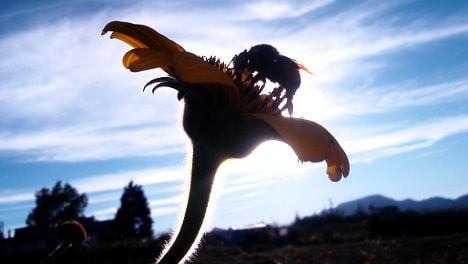“I have warned the group that sells Cruiser that I envisage withdrawing the licence to market,” Le Foll said after the National Food, Environment and Work Safety Agency (ANSES) issued a damning report on the pesticide.
The Swiss chemical giant has 15 days to respond to the ANSES report’s conclusion that the pesticide shortens bees’ lifespans.
“ANSES’s report brings in new elements and clearly shows the harmful effect of this product on bees’ mortality and I want to take into account what has been said,” Le Foll said.
The minister said he would raise the possibility of a European Union-wide ban with the European Commission and the European Food Safety Agency (EFSA).
The ANSES report was called for in March after the journal Science published a French study demonstrating the harmful effects on bees of broad-spectrum insecticide thiamethoxam, found in Cruiser.



 Please whitelist us to continue reading.
Please whitelist us to continue reading.
Member comments